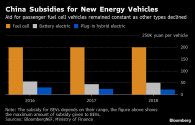BYD export breakdown
a lot of seals this month. It's really ramping up. Dolphin is the best selling now.
Chery is actually the 2nd largest domestic brand by sales, believe it or not and number 1 by export
good few days of orders for Denza since N7 ADAS release
Huawei's 600kW super chargers put into action in Guangxi
a lot of seals this month. It's really ramping up. Dolphin is the best selling now.
Chery is actually the 2nd largest domestic brand by sales, believe it or not and number 1 by export
good few days of orders for Denza since N7 ADAS release
Huawei's 600kW super chargers put into action in Guangxi

